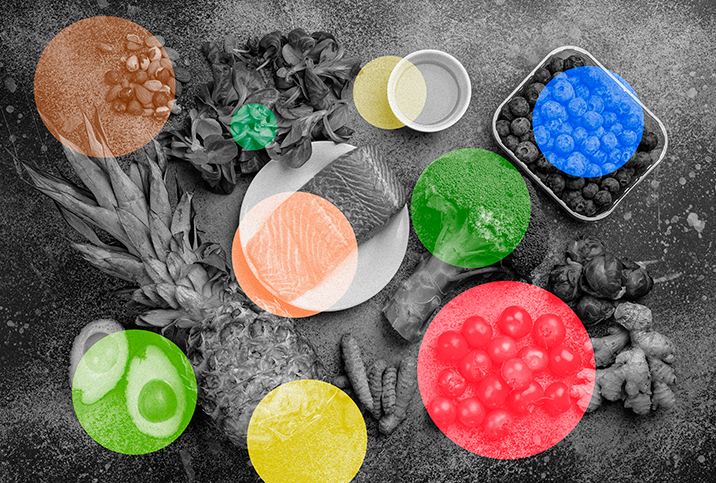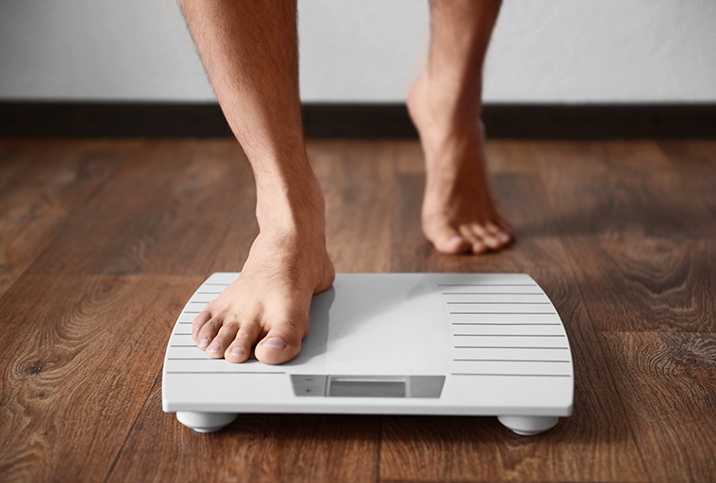Reduce Inflammation, Inflame Arousal

Chronic inflammation is at the heart of many diseases, including diabetes. Over time, inflammation triggered by diabetes can damage your blood vessels and prevent them from relaxing and functioning normally. This can result in reduced blood flow to the genitals, which affects libido and increases the risk for erectile dysfunction (ED).
Controlling and reducing inflammation can help you reignite your sexual desire and may even improve your diabetes symptoms. You can learn several ways to effectively fight diabetes-induced inflammation and reduce your risk for sexual dysfunction.
Drink more water
Water helps flush waste and toxins from your body that may be contributing to inflammation. Drinking more water is one of the easiest ways to reduce inflammation because it doesn't require any drastic lifestyle changes. Aim to drink more water throughout the day, and replace sodas, energy drinks and sugary fruit juices with clean, fresh water. Staying hydrated is also shown to improve your sexual health and libido.
Exercise regularly
Exercise activates a wide range of immune system responses to collectively fight against chronic inflammation. Evidence suggests that just one 20-minute session of moderate exercise is enough to stimulate the immune system and produce an anti-inflammatory response at the cellular level.
Walking, cycling, yoga and resistance training are all forms of moderate exercise that can effectively fight inflammation. Exercise will also help you lose excess weight, another major risk factor for inflammation and diabetes.
Reduce your sugar intake
Sugary foods—especially added sugars that contain fructose, such as high-fructose corn syrup—trigger inflammatory responses throughout the body. Fructose even triggers inflammation in cells that line blood vessel walls, according to a 2008 study published in the Journal of the American Society of Nephrology. Start cutting out or reducing your intake of sugary foods, including doughnuts, desserts, sodas, chips and alcohol, to control inflammation and your blood sugar level.
Eat more anti-inflammatory foods
Fruits, vegetables, nuts, spices and fatty fish are some of many foods that can naturally fight and reduce inflammation. Anti-inflammatory foods such as these are loaded with antioxidants, polyphenols and other nutrients that reduce your risk for diabetes and other chronic illnesses that are driven by inflammation.
Include more anti-inflammatory foods in your diet, and stick to whole, fresh versions of these foods rather than processed versions. Foods especially effective at fighting inflammation include dark leafy greens (kale, spinach and bok choy), cruciferous vegetables (broccoli, cabbage and cauliflower) and dark berries (blackberries, blueberries and raspberries).
Ask your doctor about medications
Nonsteroidal anti-inflammatory drugs (NSAIDs), including aspirin, ibuprofen and naproxen, may be effective at reducing inflammation short term. However, medicines such as these do not address the root cause of systemic inflammation and can cause serious side effects when used long term.
Ask your doctor about medications such as statins and biologicals that have anti-inflammatory effects. Biological drugs, including anti-cytokine therapies, can block the activity of kinases, or enzymes, that play a role in chronic inflammation, according to a 2010 study published in Cell.
Manage and reduce stress
At times of stress, your body releases adrenaline and a stress hormone called cortisol as part of the "fight-or-flight" response to the threat. This temporarily upsets the balance of all your other hormones (including those that suppress appetite) to help your body deal with the threat. However, long-term stress that never goes away will cause your cortisol levels to stay elevated and hinder your body's ability to effectively control and fight inflammation.
Find healthy ways to manage and reduce stress, such as practicing mindfulness meditation, yoga or listening to soothing music. Stress is a normal part of life and cannot always be avoided, but knowing how to effectively manage it can help you control chronic inflammation.
Consult your doctor if you are experiencing decreased libido or erectile dysfunction. Your doctor can help you identify and address the root cause and also help you make dietary and lifestyle changes to reduce inflammation and increase your sexual desire.


















